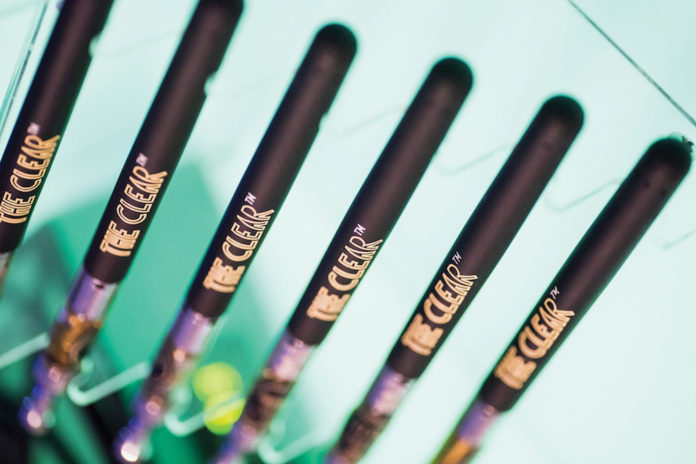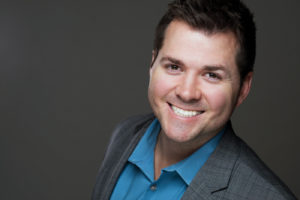Justin Pentelute is “very passionate” about cannabidiol. The chief executive officer for Batmann Consulting, which owns the licensing rights for The Clear, believes CBD product sales will eclipse THC product sales within the next twelve months. Pentelute’s conviction derives not only from witnessing CBD’s health benefits first-hand, but also from the widespread presumption the non-psychoactive cannabinoid is legal in all fifty U.S states.
The latter is what excites Pentelute-the-businessman. CBD’s revenue potential fills him with so much enthusiasm, in fact, that although Batmann doesn’t produce or market The Clear’s THC extracts, vapes, dabables, edibles, and topicals itself—preferring to license the rights to other companies in six states, with another seven states and Canada on the hook—he’s keeping all CBD business in-house. The THC licensing deals bring in $7 million annually, he said, but he anticipates manufacturing and marketing CBD oils and vapes will generate much more.
Pentelute “discovered” The Clear in 2016 and recognized an opportunity right away. Developed by scientists and engineers at California-based Headspace and launched in 2013, The Clear’s line of flavored THC distillates immediately attracted trade-name infringers. So, Pentelute—whose background includes startup management, cannabis business consulting, and private-equity funding—stepped in with an aggressive licensing and marketing campaign that established…ahem…clear dominance for the original product. Now, companies pay Batmann for the right to use The Clear’s trade name and proprietary equipment and formulas, but they do so under strict supervision. According to Pentelute, the arrangement ensures appropriate quality in both products and consumer relations.
Unlike The Clear’s THC products, which can’t be shipped across state lines, all CBD products will be manufactured, packaged, and distributed almost nationwide from Batmann’s facilities in Colorado. The company won’t ship to three states, where “the juice isn’t worth the squeeze,” Pentelute said.
He called the move into hemp-derived CBD a “lateral step,” because starting production required nothing more than shifting active ingredients; The Clear didn’t have to retool the proprietary processes or equipment developed for THC extraction and product manufacturing. The company did have to develop in-house distribution, wholesale, and online affiliate networks, and putting together a team with enthusiasm matching his own required time and effort. He expects the payoff will be worth the investment.
Not only will the CBD line provide a new revenue stream for Batmann, but Pentelute also sees a consumer advantage: National distribution will introduce more people to the benefits he and his team perceive in CBD—especially consumers in states and out-of-the-way hamlets where access to cannabis products is extremely limited or non-existent. Among benefits the Batmann team stresses are CBD’s reputed anti-anxiety and anti-inflammatory properties. The company also markets its CBD vape cartridges as an aid for smokers who are trying to subdue nicotine addiction. In addition, Pentelute wants to increase The Clear’s presence in niche markets, particularly professional sports. The company already has established relationships with the National Football League and a mixed martial arts organization, he said.
CBD is “an amazing compound,” Pentelute said. He and his team are determined “to get [the product] out to the masses in an approachable way” because “we believe consumers in every state should have access to potent, pure cannabis extracts now.”



